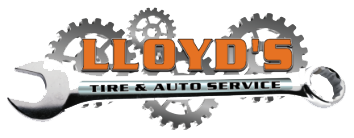Tire Shopping Guide: Finding Quality Tires in Henrico County
Choosing the right tires for your vehicle affects safety, performance, and fuel economy. Henrico County drivers face diverse driving conditions, from urban streets to highway commuting, requiring tires that perform well in all situations while providing long-lasting value.
Understanding Tire Types and Categories
All-season tires provide balanced performance for most driving conditions throughout the year. These versatile tires handle dry pavement, light rain, and occasional snow, making them ideal for Virginia's moderate climate and varied weather patterns.
Performance tires prioritize handling and responsiveness, featuring specialized rubber compounds and tread patterns for enhanced grip. These tires excel in dry conditions and provide superior cornering ability, though they may wear faster than standard all-season options.
Reading Tire Size and Specifications
Tire sidewalls contain essential information about size, load capacity, and speed ratings. The tire size appears as a sequence like "225/65R17," indicating width, aspect ratio, and wheel diameter. This information ensures proper fitment and performance characteristics.
Load index and speed rating numbers indicate the tire's weight-carrying capacity and maximum safe speed. These specifications must match or exceed your vehicle's requirements for safe operation and optimal performance.
Evaluating Tire Quality and Performance
Tread pattern design affects traction, noise levels, and wear characteristics. Symmetrical patterns provide even wear and quiet operation, while directional patterns excel in wet weather performance. Asymmetrical designs balance different performance characteristics across the tire width.
Tire construction quality varies significantly between manufacturers and price points. Premium brands invest in advanced rubber compounds, steel belt construction, and quality control processes that result in longer life and better performance.
Seasonal Considerations for Virginia Drivers
Virginia's climate demands tires that handle hot summers and occasional winter weather. Summer heat increases tire pressure and accelerates wear, while winter conditions require adequate tread depth for traction on wet and icy surfaces.
Tread depth becomes critical during rainy seasons when hydroplaning risks increase. New tires start with approximately 10/32" tread depth, and replacement becomes necessary when depth reaches 2/32" or less for safe wet weather performance.
Professional Tire Services and Installation
Professional tire installation ensures proper mounting, balancing, and alignment for optimal performance and safety. Our tire services include comprehensive installation procedures that maximize tire life and vehicle performance.
Wheel balancing eliminates vibrations and prevents uneven wear patterns that reduce tire life. Professional balancing uses precision equipment to distribute weight evenly around the wheel and tire assembly.
Tire Maintenance and Longevity
Regular tire rotation extends tire life by ensuring even wear across all four tires. Most vehicles benefit from rotation every 5,000-7,500 miles, though specific patterns depend on tire type and vehicle drive configuration.
Proper tire pressure maintains optimal performance and prevents premature wear. Under-inflated tires increase fuel consumption and wear excessively on outer edges, while over-inflation causes center wear and harsh ride quality.
Value and Budget Considerations
Tire investment should balance upfront cost with long-term value. Premium tires often provide better mileage warranties and performance characteristics that justify higher initial costs through extended service life and improved safety.
Consider total cost of ownership when comparing tire options. Cheaper tires may require more frequent replacement, potentially costing more over time than higher-quality alternatives that last longer and perform better.
When to Replace Your Tires
Beyond tread depth measurements, visual inspection reveals tire condition issues that affect safety. Sidewall cracking, irregular wear patterns, and bulges indicate structural problems requiring immediate replacement regardless of remaining tread.
Age affects tire safety even with adequate tread depth. Rubber compounds deteriorate over time, reducing performance and increasing failure risk. Most tire manufacturers recommend replacement after six years regardless of wear condition.
For expert tire selection and professional installation in Henrico County, contact Lloyd's Tire & Auto at (804) 737-2828 . We carry quality tire brands and provide honest recommendations to help you find the perfect tires for your driving needs and budget.
